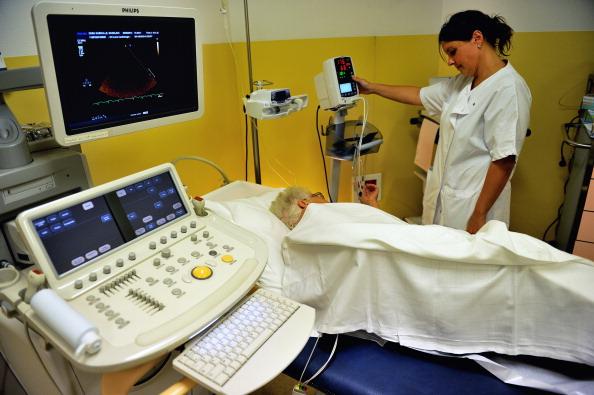

ATLANTA—After being frustrated by the world’s seeming indifference to genocide in Darfur, Melanie Nelkin launched a unique organization. The Breman Jewish Heritage & Holocaust Museum just started a Genocide Prevention Institute which gives teachers professional credit for learning how to stop genocide.
At the opening earlier this month, survivors of four genocides spoke. Tosia Schneider of Poland, Claude Gatebuke of Rwanda, Emmanuel Gai Soloman of Sudan, and Semir Dulic of Bosnia, all shared their stories with teachers who were learning how to avert genocide. Former Atlanta Mayor Shirley Franklin moderated their panel discussion.
Claude Gatebuke fled Rwanda at age 14. He has fond memories of a peaceful and beautiful landscape of a place once called “The Land of 1,000 Hills.”
He said: “In 1990, I was 11 years old. I was living at home with mother and two sisters. My father was in the United States. I was little and bunch of military trucks came with guns. I'd never seen guns before.” As Gatebuke recalled the events, his eyes stood still for a moment. He continued, “After that moment, the country was not the same anymore.”
After the slaughter began, the intervention of neighbors saved him more than once. “One night the rebels attacked a house and killed a 3-year-old boy. Afterward, we were smuggled out of the house and sheltered along with many other families.
“This neighbor arranged for us to get out of the city. As we got into a small truck and drove away … the rebels were pulling people off and killing them. At one checkpoint, I got pulled out with my mother. We were selected to be killed. Neighbors rushed over to the soldiers and pleaded for them not to kill us.
“The soldiers asked us to get shovels and dig our own graves because ‘we have to bury you right after we kill you.’ They pleaded for hours and hours. I know this because when we started out it was early morning and now it was late at night. I looked over at my mother and began saying my silent goodbyes, then somehow as these young guys were pleading with them, they let us go.”
Gatebuke hid in a small house with 30 other people, and finally escaped to America. He wants to start a genocide prevention institute in Nashville, where he lives.
Tosia Schneider wrote a memoir “Someone Must Survive to Tell the World,” and she does tell the world in order to keep a promise to her mother, who died in the Holocaust. She also told stories of intervention that made the difference to her survival. The purpose of the institute is to give people tools and knowledge they can use to intervene in contemporary genocides.
Institute founder and director Melanie Nelkin said the institute has created the first “action tool” of its kind, geared toward training and educating people in how to detect and effectively respond to genocide. Teachers who attend the genocide prevention program receive 10 hours of state continuing education credit.
Nelkin said in 2004 that Colin Powell called what was happening in Rwanda genocide. For Nelkin, this struck a chord. She joined an organization called Students Taking Action Now Darfur (STAND) and tried to put Powell’s words into action.
“We staged our first rally for Darfur in 2005 and every year on Jan. 27, but became exhausted because the rallies were not going anywhere. Our organization became muffled voices in the political arena.”
She went to Georgia Sen. Johnny Isakson’s office. “He has been to Darfur and the Congo and knows about the issues ... and his office has always been supportive of us,” said Nelkin.
State senators also signed S.B. 170 in 2009, “which prohibits Georgia from entering into any contracts with the worst offending companies supporting the genocide in Sudan,” according to text of the bill.
Nelkin was at the state capitol the day Sudan President Omar al-Bashir was indicted for war crimes and crimes against humanity. She said politics are a huge part of fighting genocide and “there are barriers to break through that are not so easily broken. So unless we teach kids how to fix the system, the system is going to stay broken. We need to teach kids how to advocate.”
She said the institute maximizes “our position by making ourselves available for colleges where students can call in and get their universities involved.”
When she was a docent at the Holocaust Museum in Atlanta, she sometimes felt frustrated when other docents seemed to approach the subject only as history. “I started as a docent so I’m still a little frustrated when I hear the docent with a group. I ultimately feel we should add the closing sentence ‘Did you know there is still genocide, right now?’”



